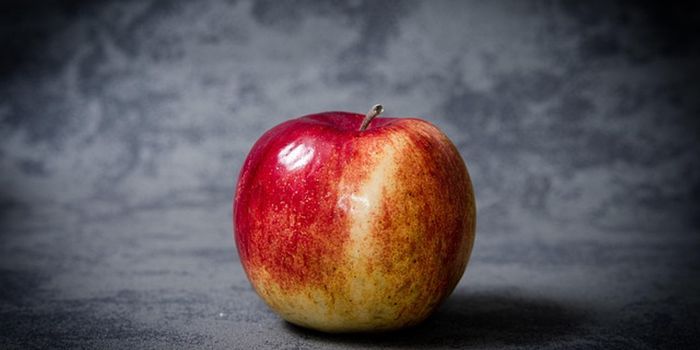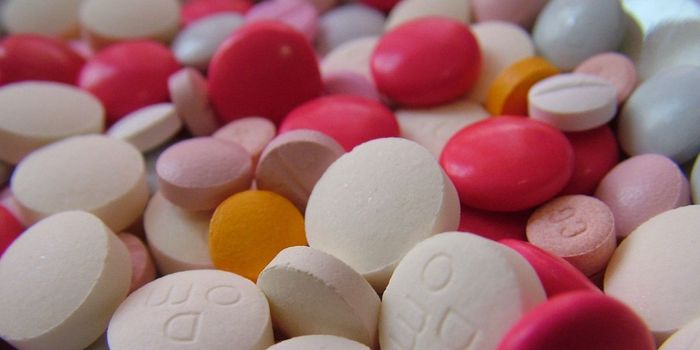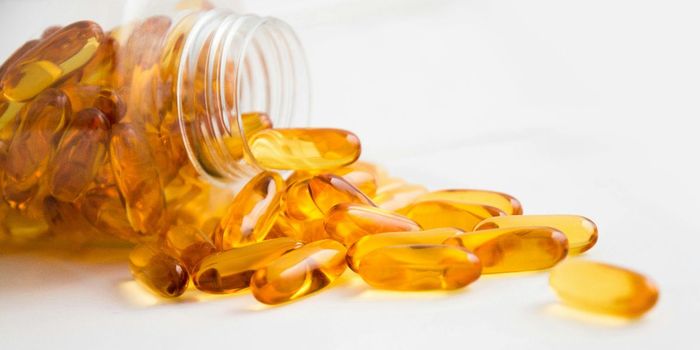Eat them in a smoothie or eat them plain, either way red raspberries are a gold mine of healthy compounds, dense with nutrients and antioxidants. A new review of red raspberry research was published in
Advances in Nutrition, and the results may have you headed to the grocery store to stock up on berries.
First, red raspberries are a rich source of vitamin C and fiber. Vitamin C is a necessary nutrient for healthy tissue growth, and the body doesn’t store any leftovers. Regularly eating foods with vitamin C is the best way to stay healthy. Here are some specific functions vitamin C provides in the body, according to
MedlinePlus:
- Protein production required for skin, tendon, ligament, and blood vessel development
- Wound healing and scar tissue formation
- Repair and maintenance of cartilage, bones, and teeth
- Iron absorption
Fiber is also a nutritious constituent but for different reasons. While the body does not absorb fiber, it helps with weight control, digestion, and constipation by adding bulk to the diet and maintaining the feeling of being “full” (
MedlinePlus).
In addition to vitamin C and fiber, red raspberries contain disease-fighting phytochemicals, commonly known as antioxidants, ellagitannins and anthocyanins. Whatever name is used to reference these compounds, there is no doubt that they boost human health in a variety of ways, some yet understood by scientists. Essentially, antioxidants work by satisfying the electron requirement of free radicals circulating in the body, preventing them from “stealing” electrons from proteins or other nutrients. Free radicals, or “oxidants,” are a natural byproduct of sugar metabolism, but other actions like smoking and ultraviolet light exposure can exacerbate the normal influx of free radicals.
While it’s easy to consider their nutrient and phytochemical profile, simply label red raspberries as “healthy” and move on, it’s important to understand specifically what foods like red raspberries can do in the fight against certain prevalent diseases; in this case it is heart disease and diabetes.
Heart disease, which impacts millions of people each year around the world, is often caused at least partially by oxidative stress-induced cellular and tissue dysfunction. Studies have shown that the disease-fighting compounds in red raspberries can fight back against oxidative stress, lowering the risk of atherosclerosis development, improving vasodilation of blood vessels, and reducing blood pressure. Ample animal and cellular studies have been conducted to prove this connection, and human studies will quickly be underway to confirm these claims.
The nutrients in red raspberries are also beneficial for reducing the impact of obesity. They can help decrease body weight by increasing fat breakdown, as seen in mouse studies. As in any type of food high in fiber, eating red raspberries can help a person to feel fuller faster, which in turn reduces overall food intake.
Britt M. Burton-Freeman, PhD, of the Center for Nutrition Research, Institute for Food Safety and Health, Illinois Institute of Technology, and lead author of the paper, believes that red raspberries could have a wide impact on overall health.
“That is what is particularly interesting about the research on red raspberries - their potential to help reduce factors contributing to metabolic syndrome which has implications for diabetes development and overall cardiovascular and brain health.”
Source:
Salt & Co.









